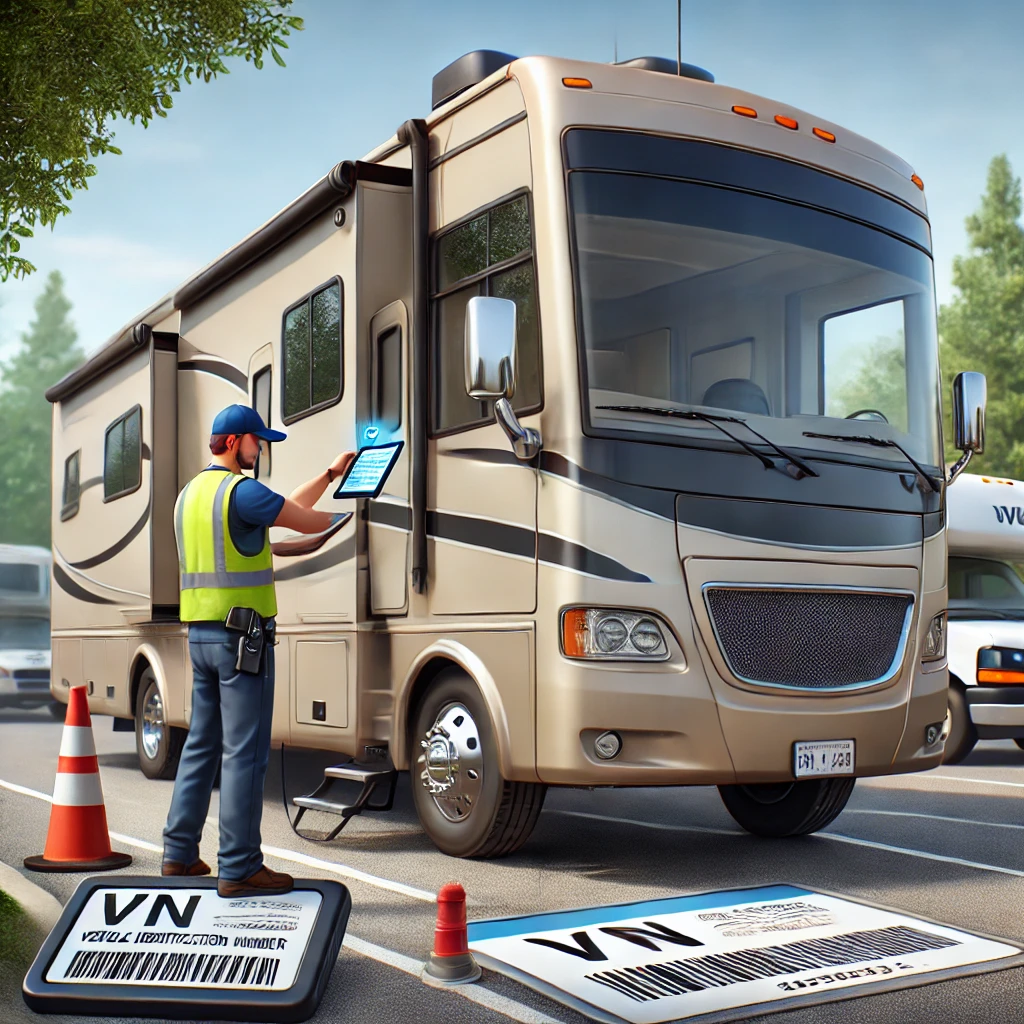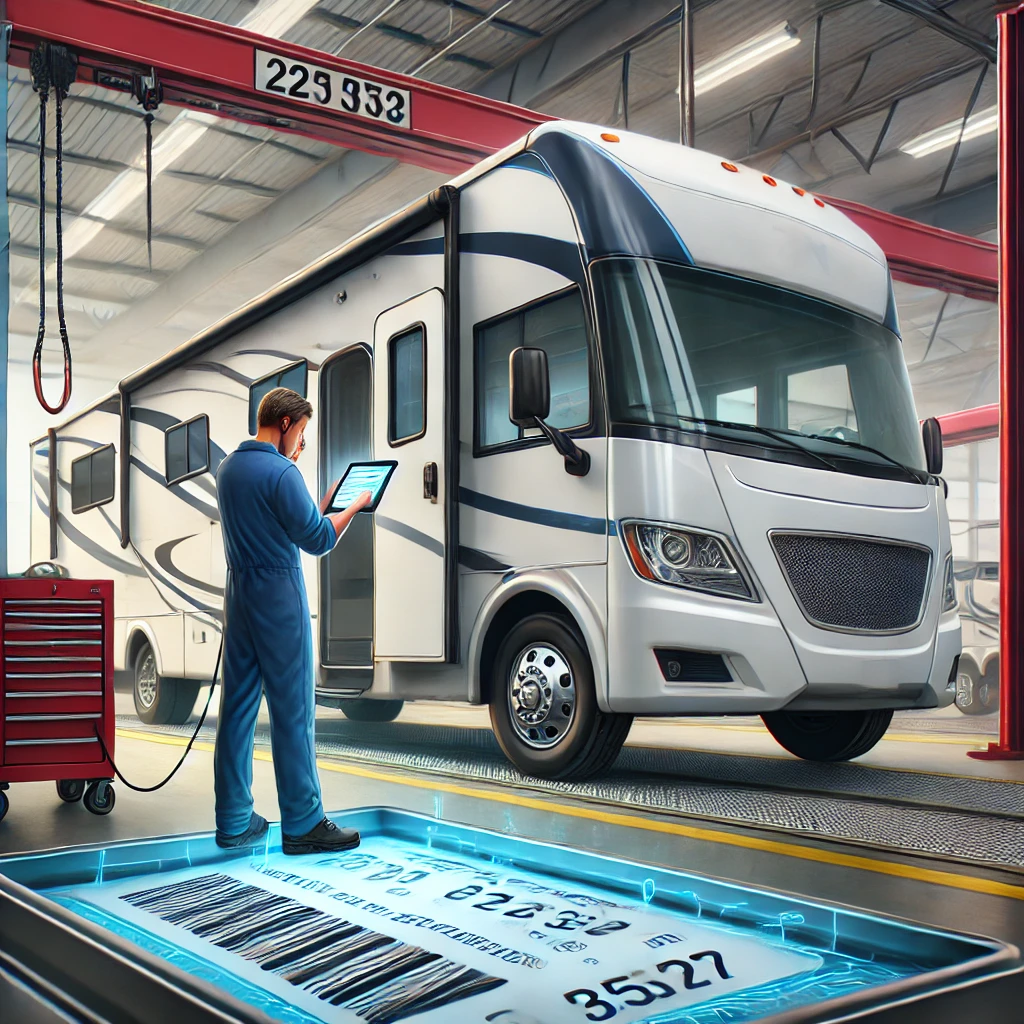RV VIN Lookup: Everything You Need to Know

Understanding the RV VIN
Before diving into the lookup process, it’s essential to understand what an RV VIN is and why it’s particularly important for recreational vehicles.
What is an RV VIN?
An RV VIN is a 17-character code that serves as a unique identifier for each recreational vehicle. Like standard vehicle VINs, it contains encoded information about the RV’s manufacturer, type, model, and production details.
Why RV VINs are Unique
RV VINs often have some distinct characteristics:
- Manufacturer Codes: Many RV manufacturers have unique World Manufacturer Identifier (WMI) codes.
- Vehicle Type: The VIN often indicates whether it’s a motorhome, travel trailer, fifth wheel, etc.
- Chassis Information: For motorized RVs, the VIN may contain information about the chassis manufacturer.
The Importance of RV VIN Lookup in Logistics
For logistics professionals using advanced software like Linbis, RV VIN lookup is crucial for several reasons:
- Accurate Inventory Management: Precisely track and manage diverse RV types and models.
- Compliance: Ensure adherence to specific regulations for different RV classes.
- Maintenance Tracking: Schedule and track maintenance based on specific RV models and years.
- Valuation: Accurately assess the value of RVs for insurance, sales, or fleet management purposes.
- Parts Ordering: Ensure compatibility when ordering replacement parts or upgrades.
How to Perform an RV VIN Lookup

Step 1: Locate the VIN
RV VINs can typically be found in these locations:
- On the driver’s side dashboard, visible through the windshield
- Inside the driver’s side door jamb
- On the vehicle registration and insurance documents
- For towable RVs, on the front left of the trailer frame
Step 2: Use Online Resources
Several online databases and services offer RV VIN lookup:
- Manufacturer Websites: Many RV manufacturers provide VIN lookup tools on their websites.
- NHTSA’s VIN Decoder: The National Highway Traffic Safety Administration offers a free VIN lookup tool.
- Commercial VIN Decoders: Paid services often provide more detailed information specific to RVs.
Step 3: Interpret the Results
RV VIN lookup results typically include:
- Manufacturer
- RV Type (Class A, B, C, Travel Trailer, Fifth Wheel, etc.)
- Model Year
- Gross Vehicle Weight Rating (GVWR)
- Manufacturing Plant
- Recall Information (if any)
.
Leveraging RV VIN Data with Linbis Logistics Software
Linbis’s state-of-the-art logistics software is designed to make the most of RV VIN data:
- Automated VIN Scanning: Quickly capture VIN data using mobile devices or dedicated scanners.
- Comprehensive RV Profiles: Create detailed profiles for each RV, automatically populated with VIN-derived information.
- Maintenance Scheduling: Set up automated maintenance reminders based on RV-specific data.
- Inventory Categorization: Easily sort and filter RV inventory based on type, model, year, and other VIN-derived attributes.
- Compliance Management: Automatically flag RVs that may require special handling or documentation based on their classification.
- Value Tracking: Monitor and project RV values over time using VIN data combined with market trends.
- Parts and Accessories Management: Streamline the process of ordering and stocking compatible parts based on specific RV models.

Best Practices for RV VIN Lookup in Logistics
To maximize the benefits of RV VIN lookup in your operations, consider these best practices:
- Regular Data Validation: Periodically verify that VIN data in your system matches the physical RVs.
- Staff Training: Ensure your team understands how to perform and interpret RV VIN lookups accurately.
- Integration with Other Systems: Connect your VIN lookup process with inventory management, CRM, and maintenance tracking systems.
- Keep Historical Records: Maintain a history of VIN lookups and associated data for trend analysis and future reference.
- Stay Updated on RV Industry Changes: RV manufacturers occasionally update their VIN systems, so stay informed about any changes.
Challenges in RV VIN Lookup
While RV VIN lookup is generally straightforward, there are some challenges to be aware of:
- Older RVs: VINs for RVs manufactured before 1981 may not follow the standardized 17-character format.
- Custom RVs: Some custom-built RVs may have non-standard VINs or limited information available through standard lookups.
- Data Discrepancies: Occasionally, there may be discrepancies between VIN data and the actual RV specifications, particularly for older or modified vehicles.
- Limited Manufacturer Data: Some smaller RV manufacturers may have limited information available through public VIN lookup tools.

The Future of RV VIN Lookup in Logistics
As technology advances, we can expect to see developments in RV VIN lookup and its applications in logistics:
- AI-Powered VIN Analysis: Machine learning algorithms could provide more accurate and detailed insights from VIN data.
- Blockchain for VIN Verification: Blockchain technology could be used to create tamper-proof VIN records.
- IoT Integration: VINs could be linked with IoT devices for real-time tracking and diagnostics of RVs in transit or storage.
- Enhanced Mobile Applications: More sophisticated mobile apps for on-the-go VIN lookup and RV management.
Conclusion: Mastering RV VIN Lookup for Logistical Excellence
Understanding and effectively using RV VIN lookup is a critical skill in modern RV logistics and management. With Linbis’s advanced software, you can transform this knowledge into a powerful tool for enhancing efficiency, ensuring compliance, and driving strategic decision-making in your RV-related operations.
By mastering the intricacies of RV VIN lookup, logistics professionals can stay ahead in an industry where precision and detailed knowledge are paramount. Whether you’re managing a fleet of rental RVs, coordinating RV shipments, or optimizing a dealership’s inventory, the ability to quickly and accurately retrieve and interpret RV VIN data is invaluable.
Ready to revolutionize your approach to RV management and logistics? Discover how Linbis can help you harness the full potential of RV VIN data in your operations. Contact us today for a personalized demonstration and take the first step towards a more efficient, data-driven RV logistics future.
